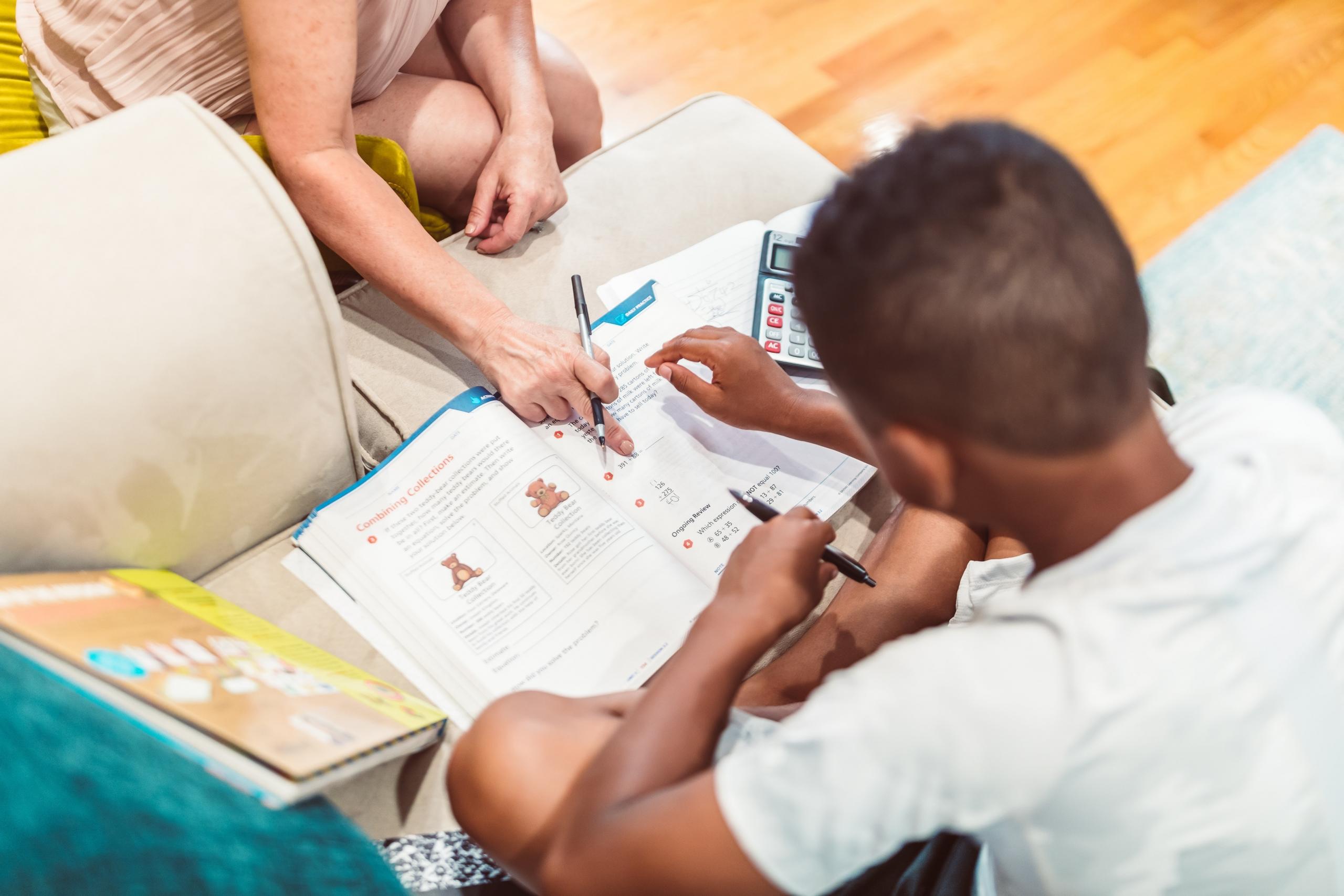Albert Einstein once said, “In the middle of difficulty lies opportunity.”
The world has, in recent times, in 2020 in particular, been faced with massive challenges which have also created great opportunities. To curb the spread of the Covid-19 pandemic, parents around the globe were requested or directed to confine their children to their homes, which meant that many found themselves teaching their offspring themselves.
Many have decided that they want to continue teaching their children themselves. There are a few legal hoops to jump through, but they’re not insurmountable.
Homeschooling was incorporated into the South African Schools Act in 1996 and is therefore legal in South Africa. So you can teach your children at home.
However, if your child is under the age of fifteen, you will need to apply to the provincial Head of Education before you start homeschooling.
It is worth noting that you do not personally have to instruct your child, but that you can arrange for a tutor or tutors to provide the tuition.
Are you contemplating homeschooling your child?
Here’s how to go about it.

What Are the Benefits of Homeschooling?
The best education does not happen at a desk, but rather engaged in everyday living – hands-on, exploring, in active relationship with life. Vince Gowman
You can decide at any time to homeschool your child.
Any parent whose child is enrolled at a government school can apply for the child to be homeschooled.
You would then become responsible for the child’s education until he or she has passed his or her fifteenth birthday.
Although it’s called homeschooling, it does not necessarily have to take place within the confines of your home. It can take place in a park, alongside the ocean or on a mountain walk. There are many options available to you. Nevertheless, homeschooling generally takes place at home.
There are several reasons that parents consider homeschooling. They include parents who:
- Have a child who has special educational needs (i.e. an LSEN learner).
- Have a child who may have encountered problems at school: violence, bullying, etc.
- Desire a different approach to schooling: providing tuition to children who have had to move mid-term or mid-year or to ensure that the rate of learning works for them.
- Believe that they can provide a better teaching an learning environment for their child.
With homeschooling having become very popular in South Africa, especially since the start of 2020, recent figures put the number of children who are homeschooled at around 300 000, up from 140 000 in 2019.
So, although its popularity is growing, the decision to homeschool is not irreversible. You can seek to have your child re-admitted to a mainstream school if homeschooling doesn’t work out for them. This will, no doubt, require a bit of readjustment for them after having been homeschooled.
Find more about home schooling requirements in SA on Superprof.

How Do I Start Homeschooling?
It is important that you start by contacting the school, where officials may be able to guide you through the process. Although there are parents who have not worked via the formal process in the past, the expectation is that a parent has to apply to the head of the education department (HOD) so that the child can be registered to receive home education.
While you do have to provide your child with a full-time home education, you do not have to follow the national curriculum. There is also no preferred homeschooling curriculum that is endorsed by the the Department of Education.
However, the HOD will have to be satisfied that the home schooling your child will receive:
- will be in the best interests of the child,
- will meet the minimum requirements of the curriculum at public schools; and
- will be of a standard not inferior to the standard of education provided at public schools.
The parent will also have to comply with any other reasonable conditions set by the HOD.
Learners can, however, still sit for the National Senior Certificate (NSC) exams at the end of grade 12 or even the Cambridge matric exams.

Make Sure that the Education is Full-Time
The purpose of education is to replace an empty mind with an open one. Malcolm S. Forbes
Parents are to ensure that their children receive a full-time education. This does not mean that you have to follow the DBE’s (Department of Basic Education) CAP-curriculum. Online you will also be directed to other methods, such as the classical method, traditional, online schooling, unit studies and the Charlotte Mason method/ curriculum. Online, there are some wonderful resources to help you provide quality education for your home-schooler.
Homeschooling is facing many challenges in South Africa, none less than the latest Basic Education Law Amendments Bill. The bill makes it incumbent on the parent to apply to the provincial head of education in their province and to wait until he or she has found that the contemplated homeschooling will be in the best interest of the child.
What Legal Requirements Do Parents Have to Meet?
When you, as parent, decide to homeschool your child, you assume full responsibility for the provision of education to your child. While you may become the primary educator, you may, alternatively, employ the assistance of a tutor or tutors, if you so desire. The important thing is that you ensure that your child receives adequate instruction for at least 180 days per annum.

Further, you have to confirm that the lessons provided will “fall within the scope of the compulsory phases of education", namely:
- the foundation phase (grades 1 – 3)
- the intermediate phase (grades 4 – 6)
- the senior phases (grades 7 – 9).”
You will also have to satisfy the requirement of annual testing and provide examples on request.
The homeschooling application form sets out all the necessary documents which have to accompany the formal application to homeschool, including certified copies of:
- the learner’s birth certificate;
- your child’s last school report (signed by the principal);
- parent’s identity document;
- transfer certificate issued by his school; and
- a referral letter or assessment document (in the case of an LSEN learner).
You will also have to provide a letter of motivation to support your application, provide full details of the educational programme which states the subjects to be taught, the teaching hours per subject, excursions, visits to the library, extra-mural activities and the use of a tutor.
The homeschooling application form can be found on your province’s education department’s website, is relatively easy to negotiate, and has to be completed by both parents, where applicable.
Where classes are concerned, you do not have to rigidly follow a schedule similar to a school time-table, but it would be good to spend as much time as a school would on teaching or active learning, if you do not want to fall foul of any regulations.
Educating the mind without educating the heart is no education at all. Aristotle
Find more about home schooling pros and cons on Superprof.
Financial Responsibility of Parents
You assume full financial responsibility for your child’s education when you decide to homeschool him or her. You will, of course, now personally have to source all the literature which your child requires, along with supplies for subjects, such as science, geography, art and physical education. Where notes are necessary, you will have to provide writing materials as well as printing paper and a printer-cum-copier. Make allowance for registration for external exams, like the NSC exams at the end of grade 12.
When you weigh up the financial cost of homeschooling, do consider what conventional schooling might have cost. Besides school fees and lunches or lunch money, don’t forget the morning and afternoon trips (in traffic) and transporting your child — and possibly others — to and from sporting activities.
Think about how valuable your time is to you an attach a value to that too!

Concerns About Homeschooling
Can My Child Go to University?
Every decision that you take with regards to homeschooling must take the child’s best interests into account. You may have many concerns about the impact of homeschooling on your child's future, such as whether universities accept homeschooled students.
As for students who form part of the mainstream education system, if your child wishes to attend university or college, they will need to meet the specific entry requirements of the tertiary institution they want to attend. You are therefore encouraged to inform yourself about these entry requirements and then ensure that your child will meet the minimum criteria.
If you still require more tips or guidance, have a look at our other articles or check out a host of resources available both offline and online from homeschooling communities and websites.
How Do I Know My Child is Learning?
You should see your children incorporate topics you have covered during lessons into their daily lives, during play or conversations.
However, if you have any concerns there are a number of resources, like the Footprints range of reference materials, that provide a more tangible means of tracking your child's progress.
Also, while it is expected that your child receives a full-time education, that education does not have to be provided by the parent. This is where you could utilise the services of one of the many homeschooling tutors who are just a finger-click away.
Consider searching for a tutor on the Superprof website. There you will find a great selection of experienced and talented homeschooling tutors to assist your child in any school subject. These talented folks are raring to go to assist your child with all of their academic subjects, sports, extracurricular activities and creative arts.
Even if you’re considering doing most or all of the teaching yourself, you could still enlist the services of a tutor to help you plan lessons and designing a homeschooling curriculum.
There will be a tutor out there who will suit your needs. In-person, face-to-face tutoring would obviously cost more than a tutor who would do lessons online. If you need assistance and your budget is really tight, consider working with a tutor who does group sessions
Most tutors on Superprof are very generous and offer the first lesson free of charge. Use this offer to your advantage and sample one or two, before committing to one or more who are just the right fit for your child.
Summarise with AI:












Hi there, My daughter is thinking of home schooling my grand daughter. She is in grade 9.she just cant settle in her publik school. My daughter is an single mom. Since my grand daughter started with primary clases she was identified with DETACHMENT SYNDROME. SHE WAS A PREM BABY. PLEASE ADVISE TO ALL THE DETAILS THAT WE SHOULD KNOW. MANY THANKS. MRS BOSCH(GRANNY)
Hello Sharon
In South Africa, parents have to register their children for homeschooling with the provincial education department. You can find the contact details for your province’s education department on the Department of Basic Education’s website (education.gov.za) by clicking on the “About Us” tab and then scrolling down to “Contact the DBE”. We wish you all the best with the next steps in your granddaughter’s educational journey.
I am interested in homeschooling foundation phase
Hello Euphemia,
You need to contact your Provincial Education Department to find out what the correct process is to follow in your region.